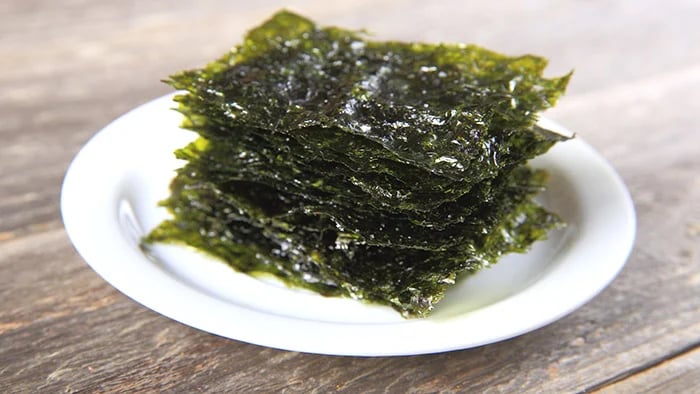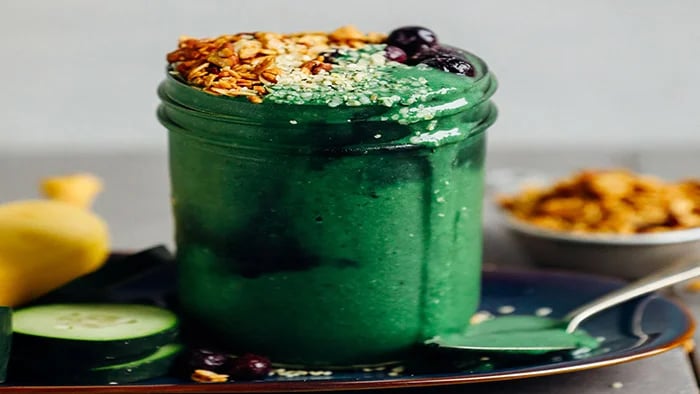Minerals are a set of nourishing elements that help build and carry out the functions of the human body while taking part in necessary chemical processes. They play a massive role in daily life, from influencing hormones to repairing tissues to influencing the mood of your children. Therefore, it is important to ensure their diet is filled with the two kinds of minerals – macrominerals and trace minerals.
- Nuts
- Cruciferous and starchy vegetables
- Dark chocolate
- Yogurt and cheese
- Berries
- Tropical and citrus fruits
- Seaweed
- Seeds
- Spirulina
- Green tea
Macrominerals are the ones the human body requires in abundant quantities, like potassium, magnesium, and calcium. Trace minerals are required in lesser amounts, like copper, selenium, and iron. But both are equally crucial for your child’s healthy growth and development. Therefore, these 10 mineral-rich foods must be added to your kids’ diet.
10 Foods That Are Rich In Minerals and Perfect For Kids
1. Nuts
Nuts are a great source of minerals and stand out for being a rich source of zinc, copper, selenium, magnesium, manganese, and phosphorus, among others. They also provide healthy fats, protein, and fiber to your kids’ diet. Therefore, it is wise to incorporate nuts like almonds, pistachios, peanuts, macadamia nuts, and pine nuts into your kids’ diet either in special dishes, smoothies, salads, curries, dressings, or plain or’ trail mix to give them a mineral-boost.
2. Cruciferous and starchy vegetables
Cruciferous vegetables like cauliflower, Swiss chard, kale, brussels sprouts, cabbage, and broccoli, are rich in minerals, providing sulfur, manganese, calcium, and magnesium to your child’s diet. As for starchy vegetables like sweet potatoes, potatoes, and butternut squash, they are packed with fiber, vitamins, antioxidants, and multiple minerals. Instead of refined carbs, incorporate these vegetables into your kids’ diet and watch them happily meet their daily dietary requirements.
3. Dark chocolate

Dark chocolate, specifically cocoa, also increases your kid’s mineral levels when consumed in moderation. Since cocoa provides good levels of copper, potassium, magnesium, iron, and other vitamins, health professionals do not advise against the consumption of dark chocolate and often advocate for the same. Since chocolate is a mood-enhancer, it can also help other healthy ingredients gain favor with your child when paired.
4. Yogurt and cheese
Though yogurt is healthier than cheese, in terms of calories, cheese is tastier and a greater hit among children. Both cheese and yogurt are a common source of calcium for children, but they also house minerals like phosphorus, potassium, selenium, and zinc. Try to opt for low-fat cheese and yogurt, and ensure your kids consume them in moderation as snacks or with breakfast.
5. Berries
Berries like blueberries, blackberries, raspberries, cranberries, and strawberries are appealing and delicious and have many minerals in their tiny bodies. Berries protect kids from oxidative stress, nervous system problems, slow metabolism, poor immune systems, weak bones, and weak muscles. Incorporate berries into your kids’ diet as a lunchbox snack, in fruit salads, or dripped in dark chocolate for a mineral-rich snack.
6. Tropical and citrus fruits
Tropical and citrusy fruits like mangoes, oranges, pineapples, lemons, passion fruits, bananas, and jackfruits are rich in minerals, fiber, and antioxidants. Incorporate them more into your kids’ diet according to season and watch them enjoy sweet and sour fruits, while their respective minerals pass on their goodness to your children.
7. Seaweed

Though there are many kinds of seaweed, Nori, Wakame, Kombu, Sea Lettuce, and Irish Moss, are some of the most widely consumed varieties Rich in iodine, iron, calcium, chloride, and magnesium, seaweed can be consumed in a variety of global dishes. You can even air-fry or roast them and have your kids enjoy them as seaweed crisps.
8. Seeds
Usually paired and forgotten with nuts, seeds can hold their in a mineral comparison, thanks to their rich source of nutrition. A simple serving of pumpkin seeds provides as much as 9 gm of protein and 40% of the daily magnesium intake of children. Rich in healthy fats, iron, calcium, phosphorus, potassium, phenolic compounds, and antioxidants, seeds are a wonderful source of minerals for your kid.
9. Spirulina

Spirulina is an edible, blue-green algae sold in powder form and is loaded with antioxidants and minerals like copper, manganese, potassium, iron, and magnesium while lowering the risk of cardiovascular diseases and oxidative stress. You can incorporate spirulina in your child’s smoothie, oats, or desserts for a pretty color and excellent health benefits.
10. Green tea
Matcha green tea is a superfood for humans, providing rich doses of minerals like zinc, iron, and calcium, along with multiple vitamins and antioxidants. Only a 1 gm serving of matcha provides vitamins A, B1, B2, B6, C, E, and K, and more than 50% of the daily carotene intake keeps your eyes healthy. Brew delicious matcha tea or make desserts, whatever it takes to make your kids develop a fast friendship with mineral-rich matcha green tea.
Since minerals are required for your kids to have a healthy upbringing, try to make them friends from a tender age. Introduce the foods to your child and help them identify their traits and benefits while they assist you during cooking or serving dinner. This will pique their curiosity and inspire them to like the food. Try to incorporate these 10 mineral-rich foods into your kid’s diet and see them work wonders for their growth and development.
Kaushiki Gangully is a content writing specialist with a passion for children's nutrition, education, and well-being. With more than five years of writing experience and a science-based background, she provides nuanced insights to help families raise happy, healthy kids. Kaushiki believes in making learning and healthy eating fun, empowering parents with practical, easy advice.
The views expressed are that of the expert alone.
The information provided in this content is for informational purposes only and should not be considered a substitute for professional medical advice, diagnosis, or treatment. Always seek the advice of your physician or another qualified healthcare provider before making any significant changes to your diet, exercise, or medication routines.











